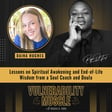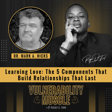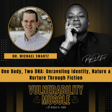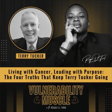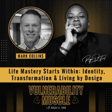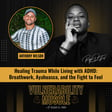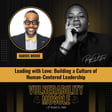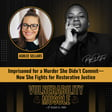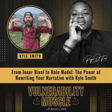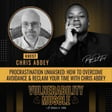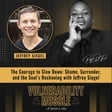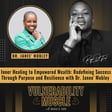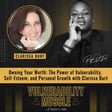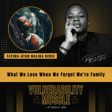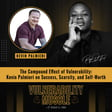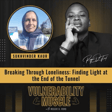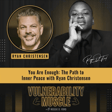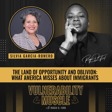
043 - Misdiagnosed and Misunderstood: What Happens When the Education System Gets It Wrong
"They labeled me with a learning disability… but I knew I was smart."
In this powerful and emotional episode of Vulnerability Muscle, host Reggie D. Ford reconnects with childhood friend Martrell Williams, whose life story is both a gut punch and a masterclass in resilience. Martrell shares how he was wrongfully placed in special education due to behavioral issues stemming from a chaotic home life—and how that decision nearly derailed his future.
From being medicated and isolated in portable classrooms to teaching himself how to read in middle school, Martrell reveals the deep emotional cost of being mislabeled, misunderstood, and underestimated. Yet, his story is one of unlearning, self-reclamation, and rising above systemic failure through therapy, faith, and grit.
He dives into:
- How grief and unprocessed trauma impacted his mental and physical health
- The role of therapy in helping him reconnect to emotions he'd long suppressed
- Why he now uses fasting, prayer, and fitness to maintain mental clarity
Martrell’s testimony is a wake-up call to parents, educators, and policymakers—because what we label in childhood can last a lifetime… unless someone dares to unlearn it.
🎧 CALL TO ACTION:
If you've ever been underestimated, mislabeled, or told you weren’t enough, this episode is for you. Tune in to hear how Martrell turned pain into purpose—and how you can too. Subscribe, rate, and share this episode of Vulnerability Muscle wherever you listen to podcasts.
📬 CONTACT INFO:
Guest – Martrell Williams
Instagram: https://www.instagram.com/trel_dior/
Facebook: Martrell Williams
Host – Reggie D. Ford
Website: reggiedford.com
Socials: @reggiedford on all platforms
🔑 QUOTES & TAKEAWAYS:
- "I didn’t have a learning disability. I had a chaotic home life."
- "They gave me pills like I was an animal—but never asked why I was angry."
- "Grief tore my Achilles. I tried to outrun pain instead of feeling it."


